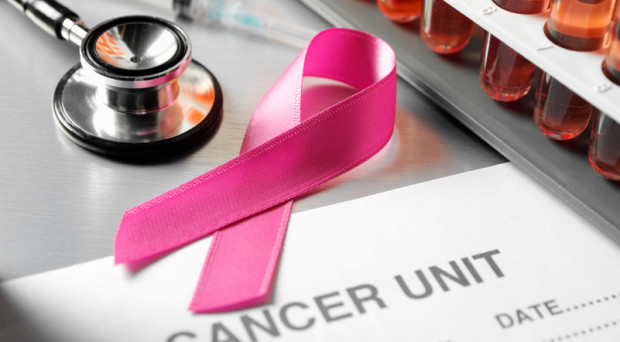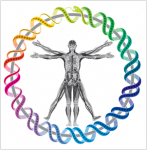
There have been tremendous gains in understanding and treating breast cancer in recent decades, and the 5-year survival rate has increased to 89%. BMC Medicine’s Spotlight on breast cancer collection launched last year, with the aim of showcasing key accomplishments in breast cancer research that have contributed to reduced morbidity and mortality among patients with the disease.
In an anniversary editorial published today in the journal, Guest Editor Debu Tripathy discusses the advances presented in original research and review articles in the collection.
Disease subtyping and molecular alterations
a pathway signature rather than any specific component might be better way to link biology to outcome
Debu Tripathy
Subtyping breast cancer according to the molecular alterations present has been a crucial step leading to the development of targeted therapies and prediction of treatment response. In a research article, Amir Sonnenblick and colleagues showed that a phosphorylated STAT3 (pSTAT3)-associated gene signature, but not activated pSTAT3 alone, is linked to trastuzumab resistance in HER2-positive breast cancer. Commenting on this research, Tripathy explains that:
“a pathway signature rather than any specific component might be better way to link biology to outcome”
In another research article exploring the link between biomarker expression and disease outcome, Marcelo Sobral-Leite and colleagues showed that expression of the protein annexin A1 (ANXA1) is associated with worse survival in breast cancer patients with BRCA mutations, particularly among those with tumors expressing HER2. Following additional validation, these findings suggest that ANXA1 could be used in the clinic as a prognostic marker, or to predict therapy response.
Hormone receptor-positive breast cancer
Focusing on hormone receptor-positive (HR+) breast cancer, Osvaldo Artigalás and colleagues conducted a systematic review and meta-analysis to look at the association between polymorphisms in CYP19A1 – the gene encoding aromatase – and response to aromatase inhibitor (AI) treatment. The authors found that the rs4646 variant may predict clinical benefit of AI therapy. Discussing this study in the editorial, Tripathy highlights that the findings illustrate the need to assess large numbers of studies to evaluate associations between gene polymorphisms and phenotypes from broad searches.
While some promising biomarkers for AI treatment are emerging, there are currently no predictive markers in clinical use that can identify those likely to benefit from endocrine therapies. In a review article, Angelo di Leo and colleagues explain that treatment decisions for postmenopausal patients with HR+ breast cancer are based on clinical criteria such as symptoms and degree of metastasis. The authors review the development of hormonal therapies, and discuss the different strategies to overcome resistance.
Reducing the burden of chemotherapy
Decision aids may be helpful in allowing patients and caregivers to make more informed decisions about the potential benefits of adjuvant chemotherapy
Anampa et al.
BMC Medicine 2015, 13:195
Adjuvant therapies are often given to patients with breast cancer to reduce the risk of recurrence. In a review article, Joseph Sparano and colleagues discuss the evolution of adjuvant systemic therapy, with a focus on adjuvant chemotherapy. The authors discuss the benefits and harms associated with chemotherapy, and conclude that:
“Decision aids may be helpful in allowing patients and caregivers to make more informed decisions about the potential benefits of adjuvant chemotherapy, and multiparameter gene expression assays may allow more accurate estimates of the potential benefits of such therapy”
Breast cancer treatment, particularly chemotherapy, is associated with a number of side effects, the most common of which is fatigue. In a randomized controlled trial, Noémie Travier and colleagues assessed whether an 18-week exercise intervention program could help prevent treatment-related fatigue.
The intervention was found to reduce treatment-associated fatigue and improve fitness, highlighting the benefits of physical activity during cancer treatment. Commenting on this study, Tripathy emphasizes that:
“Such studies are critical to define optimal approaches and methods to individualize physical activity regimens. Also, long-term sustainability of lifestyle interventions must be achieved for any long-term impact on quality of life and cancer control endpoints”
Taken together, the articles published in our breast cancer collection encompass a range of clinical and translational studies that should contribute towards improving clinical outcomes for patients.
As we are continuing to receive submissions describing important research findings, our Spotlight on breast cancer collection will remain open for submissions until the end of 2015. You can read more about the collection here: https://www.biomedcentral.com/bmcmed/series/Spot_breast_cancer, or send any pre-submission enquiries to bmcmedicineeditorial@biomedcentral.com.
 BMC Medicine: passionate about quality, transparency and clinical impact
BMC Medicine: passionate about quality, transparency and clinical impact
2014 median turnover times: initial decision three days; decision after peer review 41 days
Comments